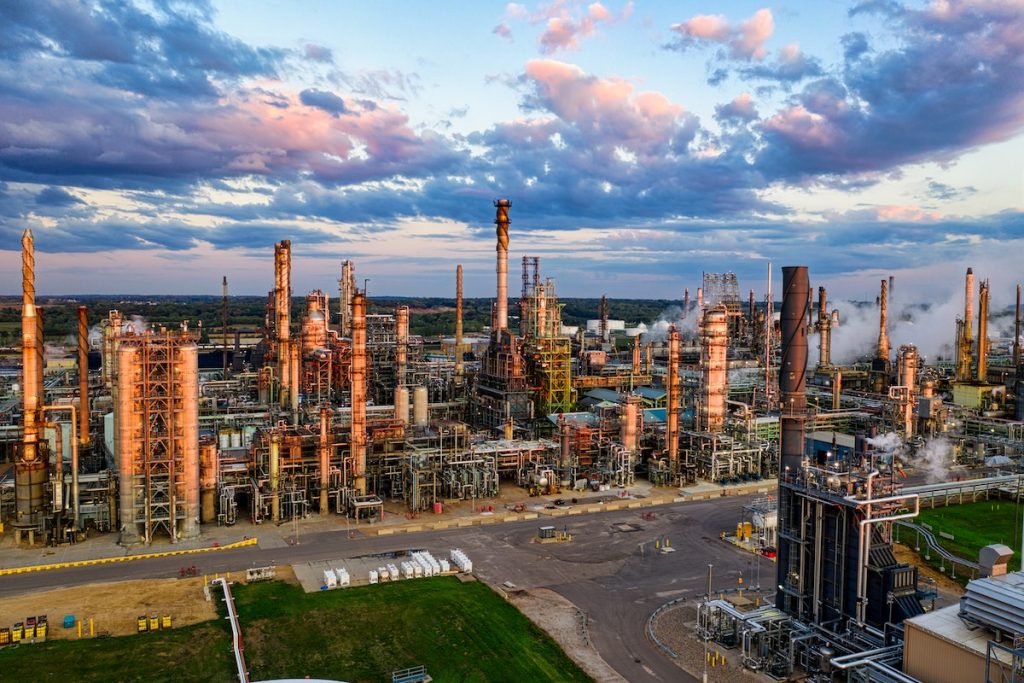- Digital pressure gauges provide error-checking capabilities and improve safety and accuracy by transmitting signals to a controller.
- Automated process control systems monitor and control engineering systems and processes for increased accuracy and better safety protocols.
- Data acquisition and management systems collect, measure, and manage relevant sensor data to optimize performance.
- Intelligent instrumentation technologies enable better accuracy by providing real-time analysis and feedback through automation.
The oil refinery process is a complex and dangerous operation, with the potential for accidents due to human error. Technological advancements have been implemented in oil refineries to minimize the risks of such errors and ensure greater operations accuracy.
By utilizing these technologies, oil refineries can guarantee more reliable and consistent results while improving safety standards. Not only do these help increase accuracy, but they also reduce costs associated with maintenance and repairs which helps improve profitability for businesses within this industry.
Digital Pressure Gauge
Accurate digital pressure gauges are essential for precise measurements in oil refinery processes. This technology is designed to interface with digital control systems, allowing for automatic readouts and data analysis through signals transmitted from the pressure gauge to a controller.
This makes it easier to regulate pressures in processing systems and ensure the accuracy of readings taken by providing error-checking capabilities and alerting operators when a reading is outside of specified limits.
Furthermore, these gauges can store and record data that can then be used for performance optimization purposes. Digital pressure gauges are, therefore, invaluable pieces of equipment for ensuring better safety and quality control protocols during oil refinery operations.
Automation Tools
Here are some of the practical automation tools that help improve accuracy in oil refineries:
Automated Process Control Systems
Automated process control systems represent a significant breakthrough in the oil refinery industry. This technology monitors and controls engineering systems and processes simultaneously, allowing for a higher degree of accuracy than what could have been achieved with manual operations.
In particular, these systems analyze factors such as pressure and temperature to detect errors or variations in the process and suggest the appropriate corrective actions accordingly. This increases safety and efficiency while ensuring that products meet quality requirements.
As an example of this technology’s application, sensors installed in oil pipeline systems can enable communication between control rooms, pumping stations, supply tanks, and refineries; using this information, required adjustments can be made remotely to ensure that pressures stay within predetermined levels.
Data Acquisition and Management Systems
Data acquisition and management systems (DMS) provide tangible benefits to the oil refinery process, including improved accuracy. DMS are a combination of hardware and software that collect, measure, and manage relevant data from various sources, such as sensors installed directly into critical points in refinery processes.
This data can then be examined and analyzed to improve decision-making. For example, advanced forms of these systems provide analytics on core parameters like pressure, temperature, and flow in real time, allowing faster corrective action when needed. Of course, this significantly boosts safety and optimizes efficiency by improving the reliability of data used or derived during the refining process.
Additionally, unlike relying only upon human operators to monitor processes or traditional manual measurements, modern DMS systems help prevent material wastefulness due to output durations being more closely monitored and controlled.
Intelligent Instrumentation Technologies

Intelligent Instrumentation Technologies, or IITs, are essential to modern-day oil refinery processes. These technologies allow for improved accuracy by providing real-time analysis and feedback through automation and controlling instrument performance. It is beneficial when refining fuel blends and obtaining desired production thresholds with precision.
For example, optical sensors can detect a range of parameters like flow rate, temperature, and pressure levels at different stages of the refining process. At the same time, software algorithms act in real-time to optimize operational efficiency and manage the system response.
IITs can also identify higher temperature deviations or changes in pressures associated with specific points in the process so that maintenance engineers can be alerted to any potential problems early before they become critical. This helps increase safety, decreases downtime, and improves yield outputs and product quality.
Online Analyzers for Measurement of Oil Properties
Online analyzers for measuring oil properties have become essential in oil refinery processes, as they offer greater accuracy than traditional technologies. These analyzers combine advanced laboratory analysis and real-time instrumentation to provide a continuous flow of information about various chemical properties of oil.
The data collected is often used to adjust refining processes as needed, which can result in more efficient operations and the production of higher quality products. For example, an online analyzer can accurately and efficiently measure specific gravity, viscometer, water content, and total acid number. This type of automation eliminates human error associated with manual methods and enables refineries to monitor changes in their process more effectively.
Non-Contact Temperature Sensors

Non-contact temperature sensors are essential for oil refineries to improve accuracy and efficiency. These sensors provide a direct line of temperature feedback so adjustments can be made quickly for optimal performance, reducing the risk of any adverse effects of temperature fluctuations.
Typically in industrial applications, these non-contact sensors measure the thermal radiation from a process or object, which can tell the exact temperature without causing interference or interruption within the application itself.
The benefits of this technology include improved safety because workers no longer need to come close to hazardous areas and solutions that detect temperatures accurately over long distances. In particular, it is beneficial for monitoring large cylindrical tanks for accurate readings.
These are just a few of the technological advancements that have been implemented in oil refineries to improve accuracy, safety and efficiency. With this technology, businesses can guarantee more reliable and consistent results while boosting profitability for their operations.




